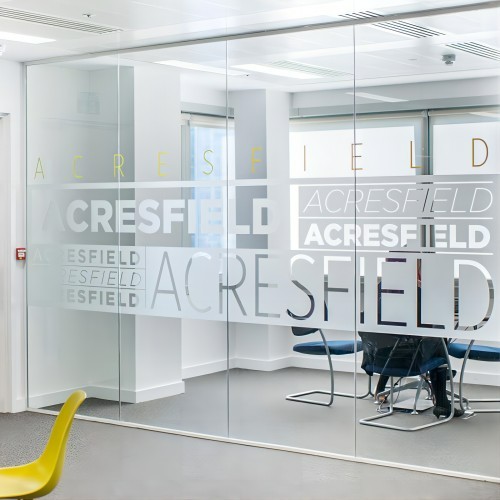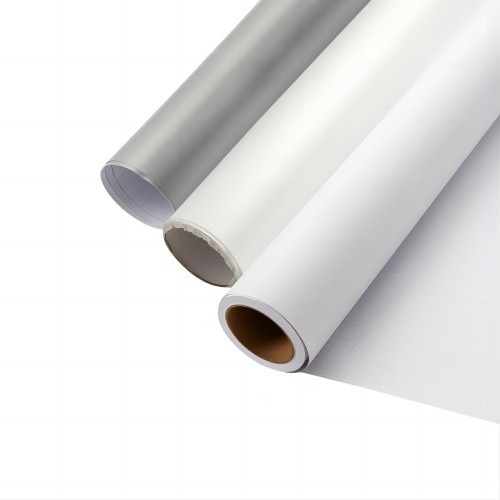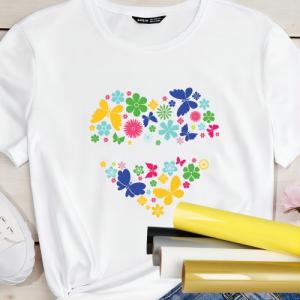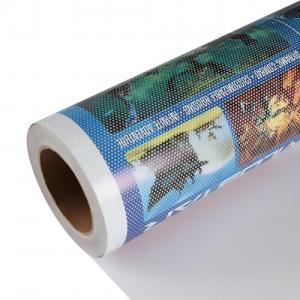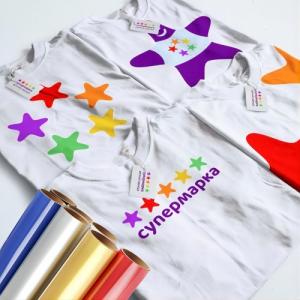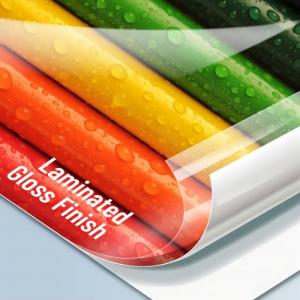Features of Window Film:
1. Solar Control: Window film is designed to control the amount of solar heat and glare that enters a space. It can block a significant percentage of the sun's heat, reducing the need for excessive air conditioning and improving energy efficiency.
2. UV Protection: High-quality window film offers excellent protection against harmful UV rays. It can block up to 99% of UV radiation, helping to prevent fading and damage to interior furnishings, flooring, and artwork. It also provides protection against the harmful effects of UV rays on the skin.
3. Privacy and Decorative Options: Window film comes in various options, including frosted, patterned, or reflective films, which offer privacy and enhance aesthetics. These films can create a stylish and decorative look while allowing natural light to enter the space.
4. Glare Reduction: Window film helps to reduce glare caused by direct sunlight, reflections, or bright artificial lighting. It improves visual comfort by minimizing eye strain and creating a more pleasant environment for work or relaxation.
5. Safety and Security: Some window films are designed to enhance the safety and security of windows. These films provide added strength to the glass, making it more resistant to breakage. In the event of glass breakage, the film can hold the shattered pieces together, reducing the risk of injury from flying glass shards.
6. Energy Efficiency: By reducing solar heat gain, window film contributes to improved energy efficiency. It helps to regulate indoor temperatures, reducing the need for excessive heating or cooling, and lowering energy consumption and utility costs.
Applications of Window Film:
1. Residential Buildings: Window film can be applied to residential windows to improve energy efficiency, reduce UV radiation, enhance privacy, and control glare. It is commonly used in homes for living spaces, bedrooms, bathrooms, and glass doors.
2. Commercial Buildings: Window film finds extensive applications in commercial buildings, such as offices, retail stores, hotels, and restaurants. It helps to create a comfortable working or shopping environment, protect merchandise from UV damage, enhance privacy in conference rooms or offices, and improve energy efficiency.
3. Automotive: Window film is commonly used in automotive applications for cars, trucks, and other vehicles. It provides solar control, reducing heat and glare inside the vehicle, protecting occupants from harmful UV radiation, and enhancing privacy.
4. Educational Institutions: Window film can be applied in schools, colleges, and universities to improve the learning environment by reducing glare, protecting furniture and equipment from UV damage, and enhancing privacy in classrooms or administrative areas.
5. Healthcare Facilities: Window film is utilized in healthcare settings, such as hospitals, clinics, and dental offices, to control glare, improve patient comfort, protect sensitive medical equipment from UV radiation, and ensure privacy in treatment areas.
6. Hospitality Industry: Window film is widely used in the hospitality industry, including hotels, resorts, and restaurants. It helps to create a pleasant and comfortable environment for guests by controlling heat, glare, and UV radiation, while also providing privacy in rooms and dining areas.
Window film offers a range of benefits, including solar control, UV protection, privacy, and decorative options. Its applications span across residential, commercial, automotive, educational, healthcare, and hospitality sectors, contributing to energy efficiency, comfort, and improved living and working environments.
![af]() Afrikaans
Afrikaans![sq]() Albanian
Albanian![am]() Amharic
Amharic![ar]() Arabic
Arabic![fr]() French
French![es]() Spanish
Spanish![ru]() Russian
Russian![de]() German
German![hy]() Armenian
Armenian![it]() Italian
Italian![ja]() Japanese
Japanese![ko]() Korean
Korean![pt]() Portuguese
Portuguese![hi]() Hindi
Hindi![az]() Azerbaijani
Azerbaijani![ro]() Romanian
Romanian![pl]() Polish
Polish![th]() Thai
Thai![el]() Greek
Greek![eu]() Basque
Basque![en]() English
English![zh-CN]() Chinese (Simplified)
Chinese (Simplified)![zh-TW]() Chinese (Traditional)
Chinese (Traditional)![be]() Belarusian
Belarusian![bn]() Bengali
Bengali![bs]() Bosnian
Bosnian![bg]() Bulgarian
Bulgarian![ca]() Catalan
Catalan![ceb]() Cebuano
Cebuano![ny]() Chichewa
Chichewa![co]() Corsican
Corsican![hr]() Croatian
Croatian![cs]() Czech
Czech![da]() Danish
Danish![nl]() Dutch
Dutch![eo]() Esperanto
Esperanto![et]() Estonian
Estonian![tl]() Filipino
Filipino![fi]() Finnish
Finnish![fy]() Frisian
Frisian![gl]() Galician
Galician![ka]() Georgian
Georgian![gu]() Gujarati
Gujarati![ht]() Haitian Creole
Haitian Creole![ha]() Hausa
Hausa![haw]() Hawaiian
Hawaiian![iw]() Hebrew
Hebrew![hmn]() Hmong
Hmong![hu]() Hungarian
Hungarian![is]() Icelandic
Icelandic![ig]() Igbo
Igbo![id]() Indonesian
Indonesian![ga]() Irish
Irish![jw]() Javanese
Javanese![kn]() Kannada
Kannada![kk]() Kazakh
Kazakh![km]() Khmer
Khmer![ku]() Kurdish (Kurmanji)
Kurdish (Kurmanji)![ky]() Kyrgyz
Kyrgyz![lo]() Lao
Lao![la]() Latin
Latin![lv]() Latvian
Latvian![lt]() Lithuanian
Lithuanian![lb]() Luxembourgish
Luxembourgish![mk]() Macedonian
Macedonian![mg]() Malagasy
Malagasy![ms]() Malay
Malay![ml]() Malayalam
Malayalam![mt]() Maltese
Maltese![mi]() Maori
Maori![mr]() Marathi
Marathi![mn]() Mongolian
Mongolian![my]() Myanmar (Burmese)
Myanmar (Burmese)![ne]() Nepali
Nepali![no]() Norwegian
Norwegian![ps]() Pashto
Pashto![fa]() Persian
Persian![pa]() Punjabi
Punjabi![sm]() Samoan
Samoan![gd]() Scottish Gaelic
Scottish Gaelic![sr]() Serbian
Serbian![st]() Sesotho
Sesotho![sn]() Shona
Shona![sd]() Sindhi
Sindhi![si]() Sinhala
Sinhala![sk]() Slovak
Slovak![sl]() Slovenian
Slovenian![so]() Somali
Somali![su]() Sudanese
Sudanese![sw]() Swahili
Swahili![sv]() Swedish
Swedish![tg]() Tajik
Tajik![ta]() Tamil
Tamil![te]() Telugu
Telugu![tr]() Turkish
Turkish![uk]() Ukrainian
Ukrainian![ur]() Urdu
Urdu![uz]() Uzbek
Uzbek![vi]() Vietnamese
Vietnamese![cy]() Welsh
Welsh![xh]() Xhosa
Xhosa![yi]() Yiddish
Yiddish![yo]() Yoruba
Yoruba![zu]() Zulu
Zulu

